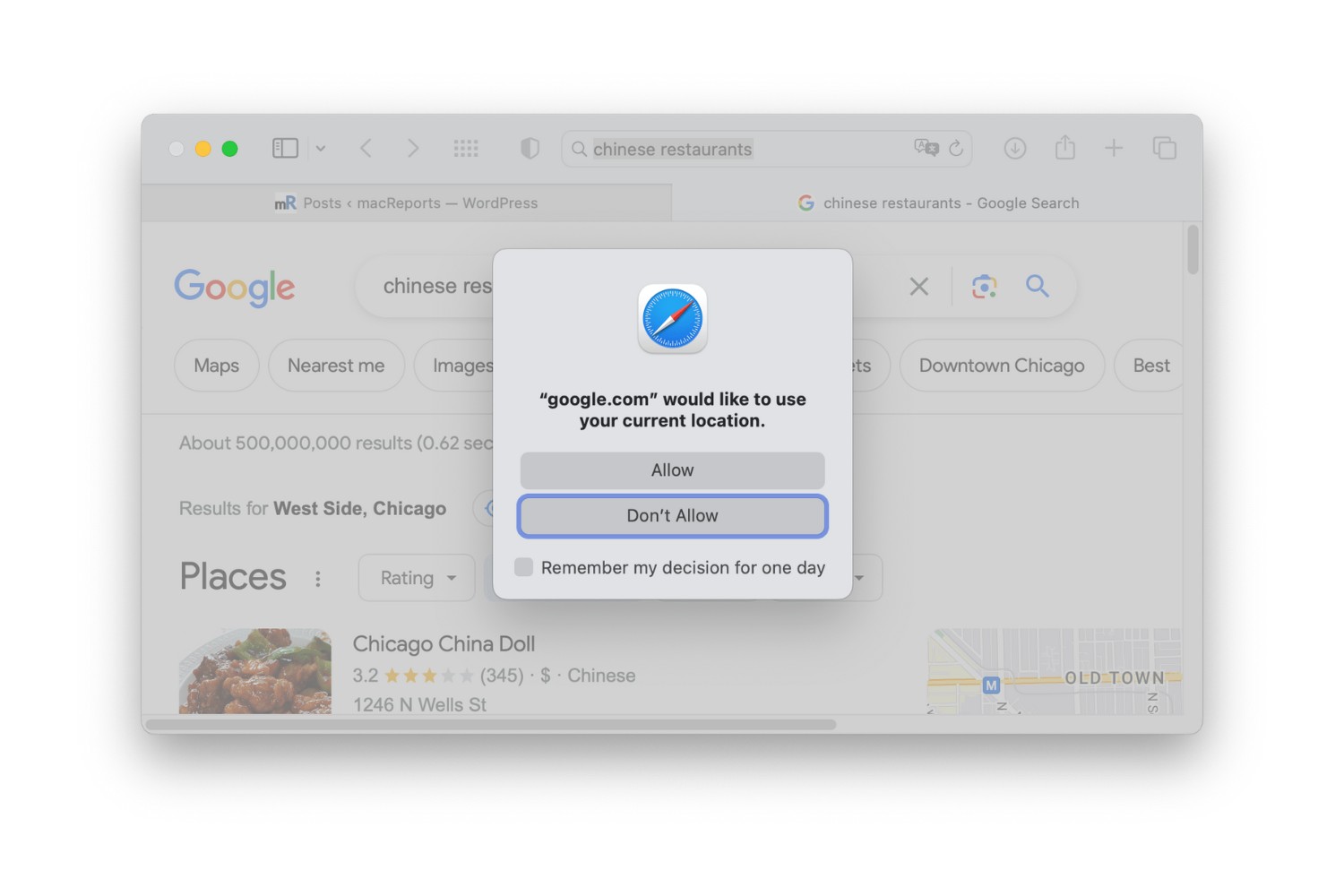Introduction
In today's digital age, web browsers have become an integral part of our daily lives, serving as gateways to the vast realm of the internet. Among the multitude of browsers available, Safari stands out as a popular choice for Apple users, offering a seamless and intuitive browsing experience. However, to fully leverage the capabilities of Safari and access various websites with personalized settings, it's crucial to understand and enable cookies.
Cookies, often likened to digital breadcrumbs, play a pivotal role in enhancing the browsing experience by storing user-specific information. They are small pieces of data generated by websites and stored on the user's device. These data snippets serve a multitude of purposes, such as remembering login credentials, personalizing content, and tracking user preferences. While the concept of cookies may sound straightforward, their impact on the browsing experience is profound.
Enabling cookies on Safari is a fundamental step towards unlocking the full potential of this browser. By allowing websites to store and retrieve information, users can enjoy personalized experiences, streamlined logins, and tailored content recommendations. However, the process of enabling cookies on Safari may vary depending on the device and the specific version of the browser.
In this comprehensive guide, we will delve into the intricacies of cookies, explore the reasons for enabling them on Safari, and provide step-by-step instructions to empower users to harness the full capabilities of this browser. Whether you're a seasoned Safari user or a newcomer to the Apple ecosystem, understanding how to enable cookies on Safari is essential for maximizing your browsing experience. So, let's embark on this enlightening journey to unravel the mysteries of cookies and unleash the full potential of Safari.
Understanding Cookies
Cookies, in the context of web browsing, are small pieces of data that websites store on a user's device. These data snippets serve various purposes, such as remembering user preferences, tracking browsing behavior, and personalizing the browsing experience. When a user visits a website, the site may send a cookie to the user's browser, which is then stored on the device. This process allows the website to recognize the user upon subsequent visits, enabling a personalized and streamlined browsing experience.
Cookies are categorized into different types based on their functions. Session cookies are temporary and are deleted once the user closes the browser. These cookies are instrumental in maintaining the user's session and login status during a single browsing session. Persistent cookies, on the other hand, remain on the user's device for a specified duration, retaining user preferences and login information across multiple browsing sessions.
Furthermore, first-party cookies are set by the website being visited and are primarily used to enhance the user experience by remembering user preferences and login information. Third-party cookies, however, are set by domains other than the one being visited and are commonly utilized for tracking user behavior and delivering targeted advertisements.
From a user's perspective, cookies play a crucial role in facilitating a personalized browsing experience. They enable websites to remember user preferences, such as language settings and personalized content recommendations, leading to a more tailored and user-centric interaction. Additionally, cookies streamline the login process by retaining user credentials, eliminating the need for repetitive logins across different sessions.
However, it's important to note that while cookies offer numerous benefits, they also raise privacy and security concerns. As cookies store user-specific information, there is a potential risk of unauthorized access to sensitive data. Moreover, third-party cookies, often used for targeted advertising, have sparked debates regarding user privacy and data tracking.
In essence, cookies serve as the building blocks of personalized web experiences, enabling websites to remember user preferences, streamline logins, and deliver tailored content. Understanding the role of cookies in web browsing is essential for users to make informed decisions regarding their privacy and browsing preferences. With this foundational knowledge, users can navigate the intricacies of enabling and managing cookies on Safari to optimize their browsing experience while maintaining control over their personal data.
Why Enable Cookies on Safari?
Enabling cookies on Safari is pivotal for unlocking a plethora of personalized and streamlined browsing experiences. By allowing websites to store and retrieve user-specific information, cookies play a fundamental role in enhancing the functionality and user-centric nature of web interactions. Here are compelling reasons why enabling cookies on Safari is essential:
-
Personalized Content: Cookies enable websites to remember user preferences, such as language settings, theme customizations, and personalized content recommendations. By allowing cookies on Safari, users can enjoy a tailored browsing experience, with websites adapting to their individual preferences and delivering content that aligns with their interests.
-
Streamlined Logins: With cookies enabled, Safari can remember login credentials for various websites, eliminating the need for repetitive logins. This convenience not only saves time but also enhances the user experience by seamlessly authenticating users across different browsing sessions.
-
Enhanced Functionality: Many websites utilize cookies to enhance their functionality, such as maintaining shopping cart contents, preserving user-selected settings, and providing localized information. By enabling cookies on Safari, users can fully leverage these enhanced features, ensuring a smooth and efficient browsing experience.
-
Personalization and Recommendations: Cookies play a pivotal role in delivering personalized recommendations and targeted content based on a user's browsing behavior and preferences. By enabling cookies on Safari, users can benefit from tailored content suggestions, product recommendations, and relevant advertisements, enhancing their overall browsing experience.
-
Remembering User Preferences: Cookies allow websites to remember user-specific preferences, such as font sizes, layout customizations, and notification settings. Enabling cookies on Safari ensures that these preferences are retained across browsing sessions, creating a consistent and personalized browsing environment.
-
Seamless Cross-Device Experience: With cookies enabled, Safari can synchronize user preferences and login information across multiple devices, providing a seamless and cohesive browsing experience. This synchronization ensures that users can seamlessly transition between their Apple devices while maintaining a consistent browsing environment.
In essence, enabling cookies on Safari is essential for unlocking a myriad of personalized, efficient, and tailored browsing experiences. By allowing websites to store and retrieve user-specific information, cookies empower users to enjoy a seamless and user-centric interaction with their favorite websites. Understanding the significance of enabling cookies on Safari is crucial for users to harness the full potential of this browser and optimize their browsing experience.
How to Enable Cookies on Safari
Enabling cookies on Safari is a straightforward process that varies slightly depending on the specific version of the browser and the device being used. Whether you're accessing Safari on a Mac, iPhone, or iPad, the following steps will guide you through the process of enabling cookies to unlock a personalized and seamless browsing experience.
Enabling Cookies on Safari for Mac
-
Open Safari Preferences: Launch Safari and click on "Safari" in the top menu bar. From the drop-down menu, select "Preferences."
-
Access Privacy Settings: In the Preferences window, navigate to the "Privacy" tab, which features a variety of privacy and security settings.
-
Enable Cookies: Under the "Cookies and website data" section, you'll find options for managing cookie settings. To enable cookies, ensure that the checkbox next to "Block all cookies" is unchecked. This action allows Safari to accept cookies from websites, enhancing your browsing experience.
-
Customize Cookie Settings (Optional): For more granular control over cookie management, you can click on the "Manage Website Data" button. This allows you to view and manage specific website data, including cookies, stored by Safari.
-
Save Changes: Once you've adjusted the cookie settings to your preference, simply close the Preferences window to save the changes. Safari will now accept cookies from websites, enabling personalized interactions and streamlined logins.
Enabling Cookies on Safari for iPhone and iPad
-
Access Settings: On your iPhone or iPad, locate the "Settings" app, which houses various device and app settings.
-
Navigate to Safari Settings: Scroll down and tap on "Safari" to access the browser's specific settings.
-
Manage Privacy Settings: Within the Safari settings, scroll down to find the "Privacy & Security" section.
-
Enable Cookies: Tap on the "Block All Cookies" option to toggle it off. This action allows Safari to accept cookies from websites, facilitating personalized content and streamlined logins.
-
Confirmation: Once you've enabled cookies, Safari will now store and retrieve website data, enhancing your browsing experience across your iPhone and iPad.
By following these simple steps, users can enable cookies on Safari, unlocking a world of personalized content, streamlined logins, and enhanced browsing functionality. Whether you're using Safari on a Mac, iPhone, or iPad, adjusting the cookie settings empowers you to tailor your browsing experience to your preferences, ensuring a seamless and user-centric interaction with your favorite websites.
Conclusion
In conclusion, cookies play a pivotal role in shaping the modern web browsing experience, enabling personalized interactions, streamlined logins, and tailored content recommendations. Understanding the significance of enabling cookies on Safari is essential for users to fully leverage the capabilities of this popular browser and optimize their browsing experience.
By allowing websites to store and retrieve user-specific information, cookies empower users to enjoy a seamless and user-centric interaction with their favorite websites. From personalized content and streamlined logins to enhanced functionality and tailored recommendations, the impact of enabling cookies on Safari is far-reaching.
As technology continues to evolve, the role of cookies in web browsing is poised to become even more integral, driving personalized experiences and user-centric interactions. However, it's crucial for users to strike a balance between reaping the benefits of cookies and safeguarding their privacy and security.
Enabling cookies on Safari is not merely a technical adjustment; it's a gateway to a world of personalized and efficient browsing experiences. Whether users are accessing Safari on a Mac, iPhone, or iPad, the process of enabling cookies is straightforward and empowers them to tailor their browsing environment to their preferences.
In essence, cookies are the digital enablers of personalized web experiences, allowing websites to remember user preferences, streamline logins, and deliver tailored content. By understanding the intricacies of enabling cookies on Safari, users can navigate the digital landscape with confidence, knowing that their browsing experience is optimized to align with their individual preferences and needs.
As we embrace the ever-expanding digital ecosystem, the ability to enable cookies on Safari represents a fundamental step towards unlocking the full potential of this browser. By harnessing the power of cookies, users can embark on a journey of personalized interactions, seamless logins, and tailored content, ensuring that their browsing experience is not only efficient but also reflective of their unique preferences and interests.
In the dynamic realm of web browsing, enabling cookies on Safari is not merely a technical adjustment; it's a gateway to a world of personalized and efficient browsing experiences. With cookies as the catalyst, users can embark on a journey of seamless interactions, tailored content, and streamlined logins, ensuring that their browsing experience is not only efficient but also reflective of their unique preferences and interests.

























